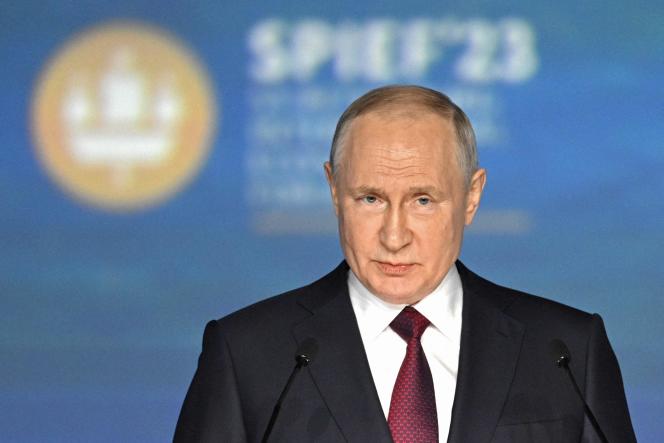After several weeks of hesitation, President Vladimir Putin confirmed on Friday June 16 that nuclear warheads had indeed been delivered by Russia to Belarus, its ally and neighbor. “The first nuclear warheads were delivered to Belarusian territory. These are only the first, by the end of the summer, the end of the year, we will complete this work totally, entirely.”Putin said at the International Economic Forum in St. Petersburg, broadcast live on Russian television.
A statement supporting remarks made on May 25 by Belarusian President Alexander Lukashenko, who was the first to announce that the “nuclear charge transfer” had started, then on June 9, that he had received “missiles and bombs” from Russia. The arrival of these weapons has not been confirmed by images, but it corresponds to an agreement between Minsk and Moscow announced since March 25, aimed at transferring tactical nuclear weapons (which Moscow has in large quantities) to the territory. Belarusian, neighbor of Ukraine.
Until now silent, the United States reacted very quickly to the announcement of the Russian president, giving credence to his statement, while minimizing its scope. “We have no reason to adjust our nuclear posture. We see no indication that Russia is preparing to use a nuclear weapon”said Friday the head of the American diplomacy, Antony Blinken. A deliberately measured reaction, in line with that adopted each time Vladimir Putin raises a threat of nuclear escalation, as he has done since the start of the war.
“We must not overreact”
The West had been preparing for this transfer, which is Moscow’s first deployment of warheads of this type outside Russia since the fall of the Soviet Union. But since the beginning of the war, they consider that Moscow seeks to contain the escalation below the threshold of the use of nuclear weapons. By continuing, for example, to notify all of its military exercises, in accordance with the Hague code of conduct against the proliferation of ballistic missiles.
“You shouldn’t overreact because it’s not fundamentally a ‘game changer’. On the other hand, psychologically, nuclear weapons are getting closer to Europe.analyzed a few weeks ago a Western source. “This transfer is not of great strategic interest, since Moscow has already installed, since 2016, weapons capable of carrying nuclear warheads in the neighboring enclave of Kaliningrad, but this can be a lever for negotiations”abounds Héloïse Fayet, researcher at the French Institute of International Relations (IFRI).
You have 43.15% of this article left to read. The following is for subscribers only.
